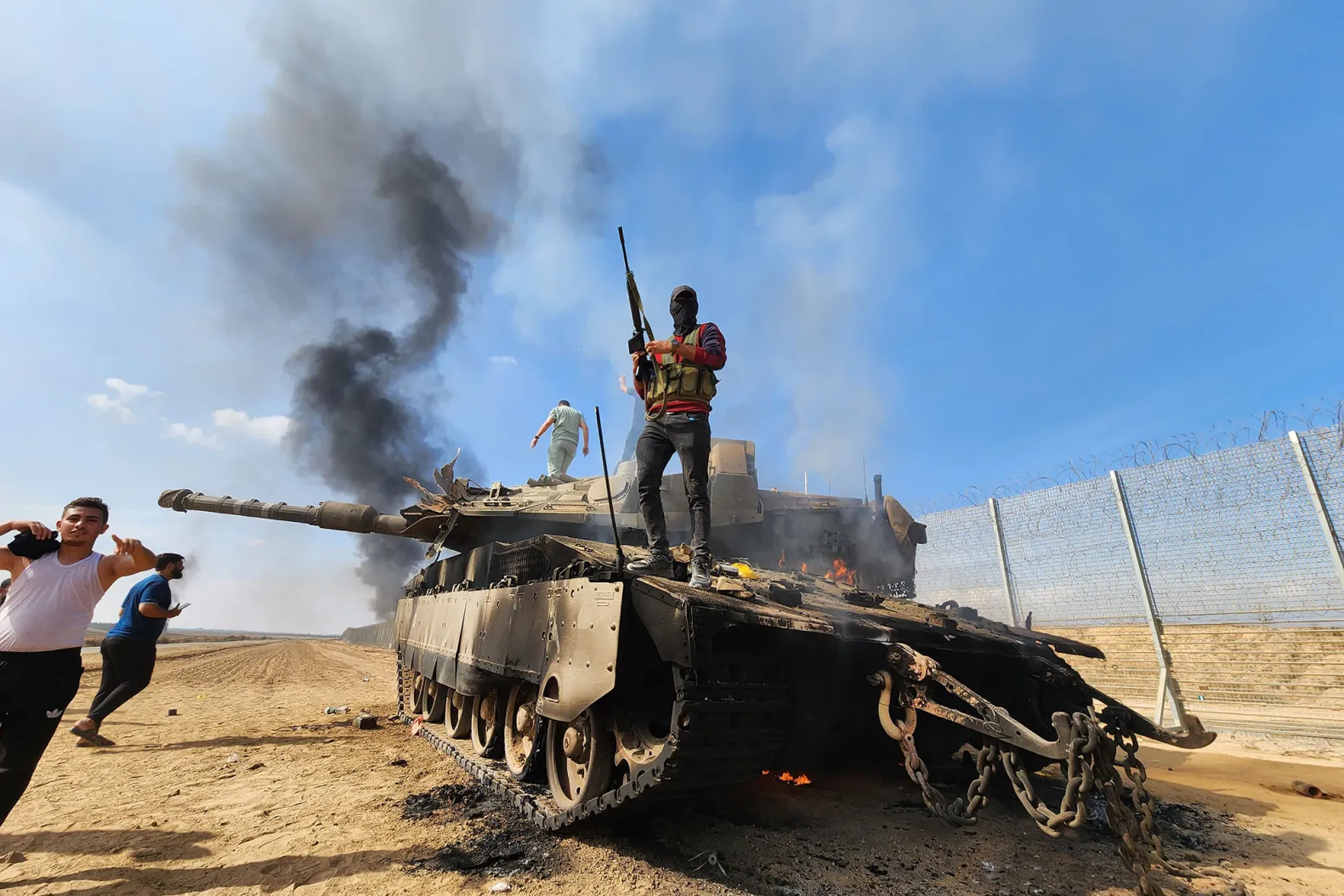Gaza Strip
Palestinians search for casualties following Israeli airstrikes on Jabalia refugee camp. [Wall Street Journal]
After the defeat of the Ottoman Empire in 1917, Palestine, a territory in the Middle East between Joran and the Mediterranean Sea, fell under the rule of the United Kingdom and became known as the British Mandate of Palestine. Following World War Two in 1947, the newly formed United Nations adopted Resolution 181, dividing the Jewish and Arab people living in the British Mandate of Palestine into their own states. The two-state deal offered the Jewish people 56%, though they made up only a third of the region’s population. Jewish leaders accepted the deal and declared independence for the state of Israel in May of 1948, despite the Arab League’s rejection of the plan. The official formation of Israel catalyzed the first Israeli-Arab War, in which Egypt, Jordan, Iraq, Syria, and Lebanon invaded the territory, but were repelled by Israel with British support. The fighting continued until 1949 and resulted in Israel taking some of the territory that had been originally designated to the Arabs and the displacement of over 700,000 Palestinians.
Israel and the Arab world would continue to clash throughout the 20th century. In 1956, Israel invaded the Sinai Peninsula in response to Egypt’s nationalizing of the Suez Canal. Israel withdrew in 1957 following UN intervention. A decade later in 1967, Israel drove back Egypt, Syria, and Jordan in the Six-Day War, gaining territory from each including the Sinai Peninsula, the Gaza Strip, and, most importantly, Jerusalem. The Yom Kippur War began on October 6, 1973, after Egypt and Syria invaded Israel in a surprise attack. Israel suffered heavy casualties before repelling the enemy forces and eventually striking peace agreements in late 1973 and early 1974. In 1978, Egypt and Israel reached a peace treaty known as the Camp David Accords, which returned the Sinai Peninsula to Egypt and gave Israel its first formal recognition from an Arab state.
Although the Camp David Accords improved relations between Israel and its neighbors, there was still significant unrest within the Palestinian communities living in the West Bank and the Gaza Strip. The first intifada occurred in 1987 when protests to Israeli occupation evolved into the throwing of stones and Molotov cocktails, stabbings, and other means of attack against Israeli targets. Approximately 2000 were killed in the first intifada, 3:1 of which were Palestinian deaths. The first intifada ended in 1993 with the signing of the Oslo Accords, setting up a framework for Palestinian self-governance. The second intifada lasted from 2000 to 2005 and was far more violent than the first. More than 4,300 deaths were recorded with the same 3:1 proportion of Palestinian to Israeli as the first. In the wake of the second intifada, Hamas, a Sunni Islamist political and military party, rose to power with popular support in the Gaza Strip.
Since Hamas came to power in 2007, there have been many clashes with the Israeli military. In 2014, Hamas fired nearly three thousand rockets at Israel and was met with a harsh Israeli retaliation. The skirmishes in 2014 killed 73 Israelis and 2,251 Palestinians. Fighting broke out again in 2015, 2018, and 2021. The most recent and deadliest conflict by far began on October 7th, 2023, when Hamas launched a surprise attack on Israel, killing roughly 1,200 Israelis. The attack represented the deadliest day for the Jewish people since the Holocaust. Israel’s response to the attack has been relentless, with an estimated 34,000 Palestinians killed, including over 13,800 children, and 35% of all buildings in the Gaza Strip destroyed. Up to 1.9 million Palestinians, over 85% of the population, have been internally displaced. Already one of the most densely populated places on Earth, millions of Palestinians in the Gaza Strip have been forced to move even closer together, taking shelter in Southern Gaza.

A Hamas militant stands on top of a destroyed Israeli tank in Gaza City, October 7, 2023. [Rolling Stone]
Sources: Council on Foreign Relations, Reuters, Britannica, Al Jazeera, UNRWA, BBC